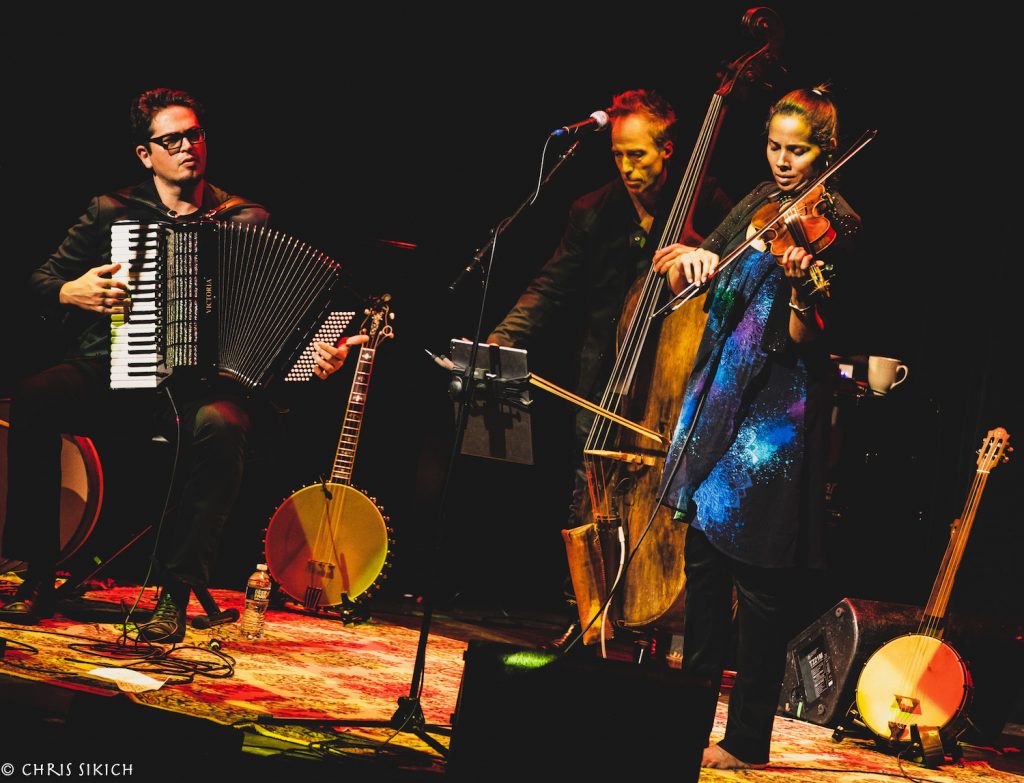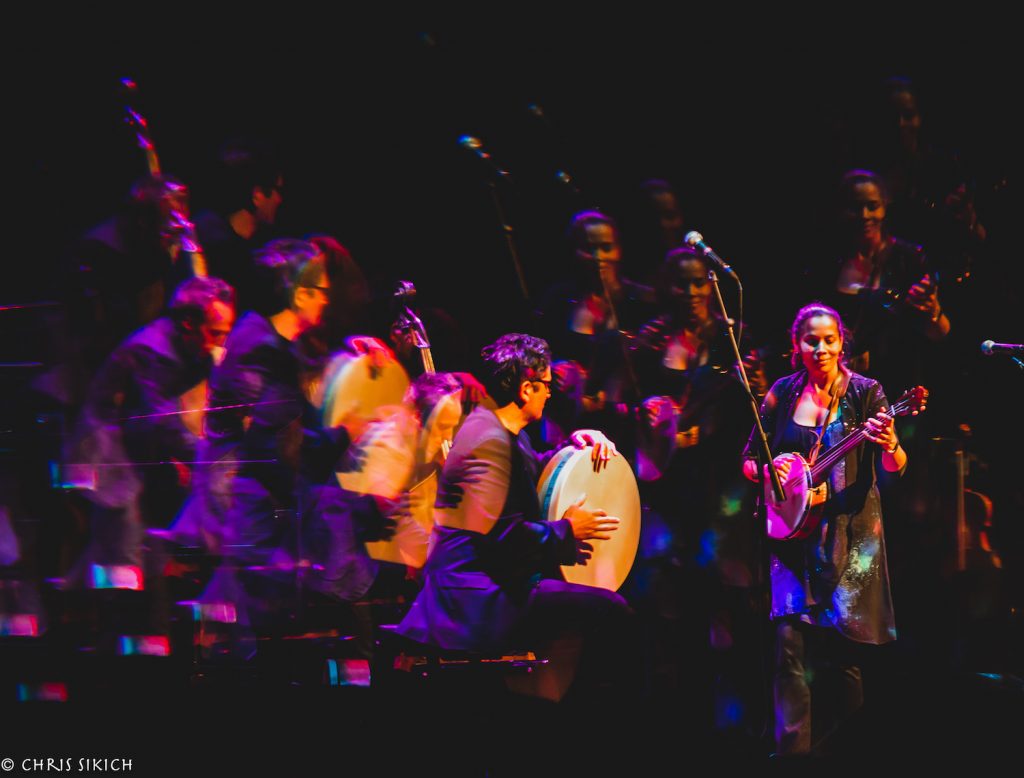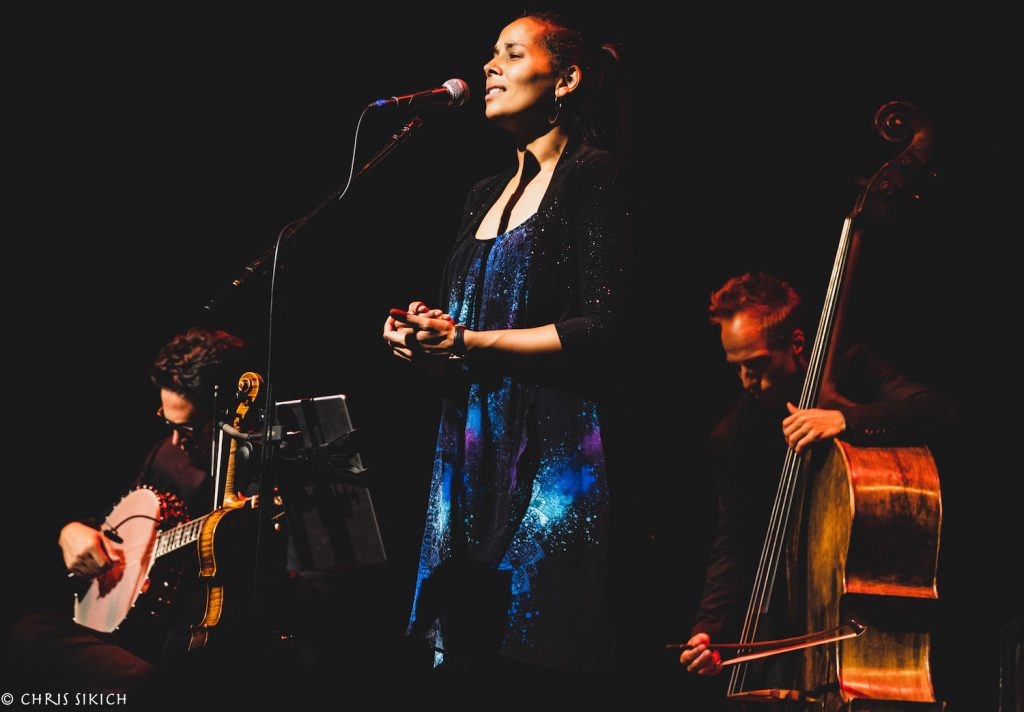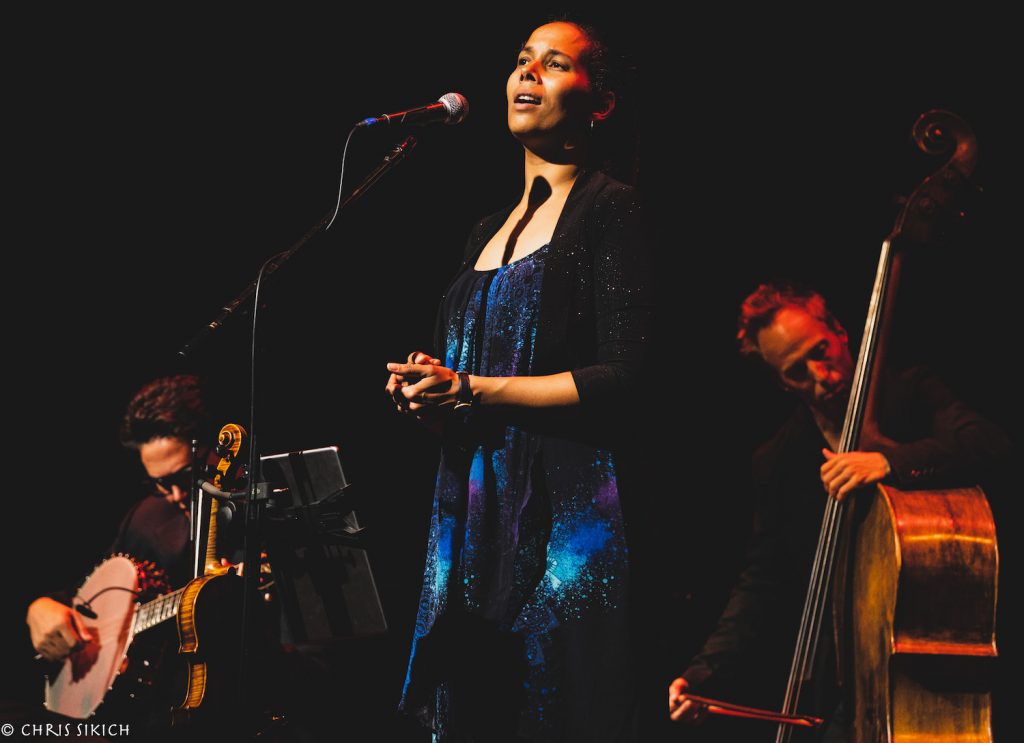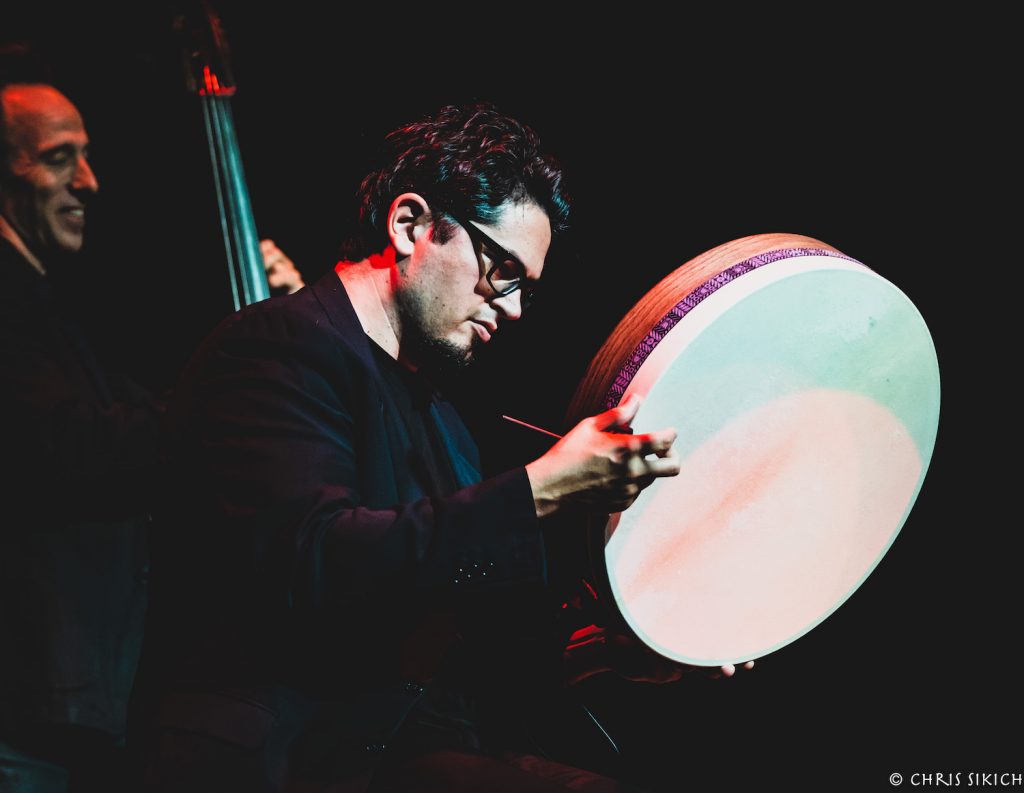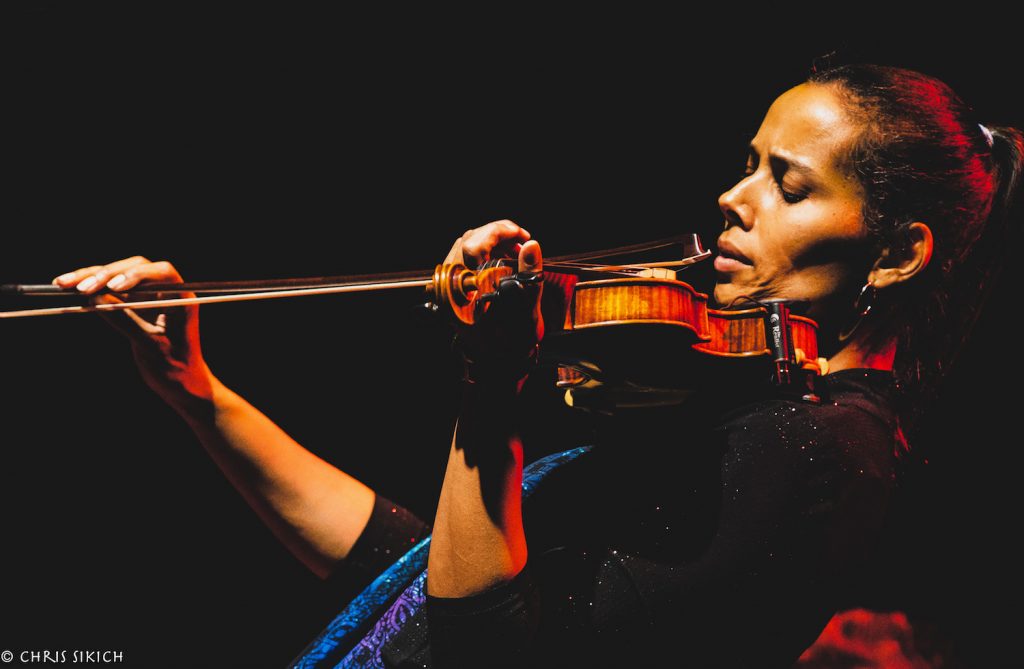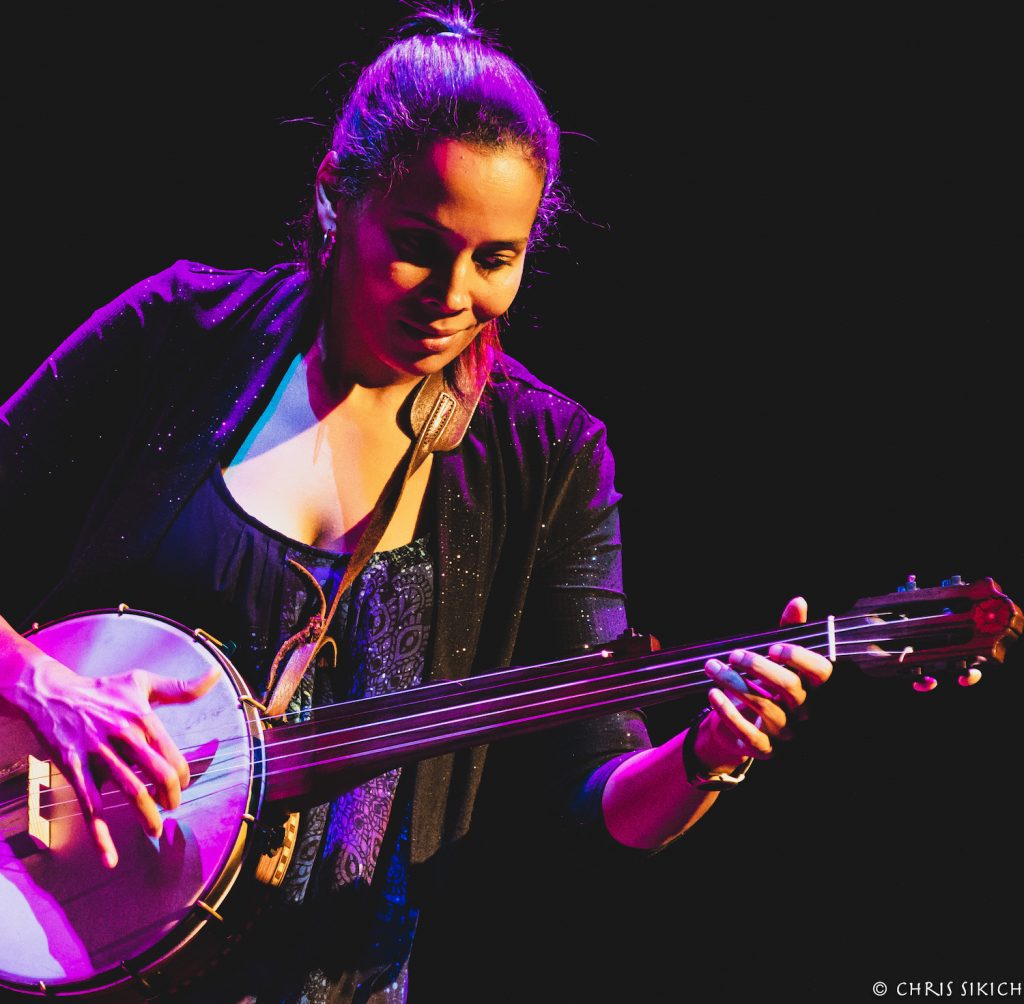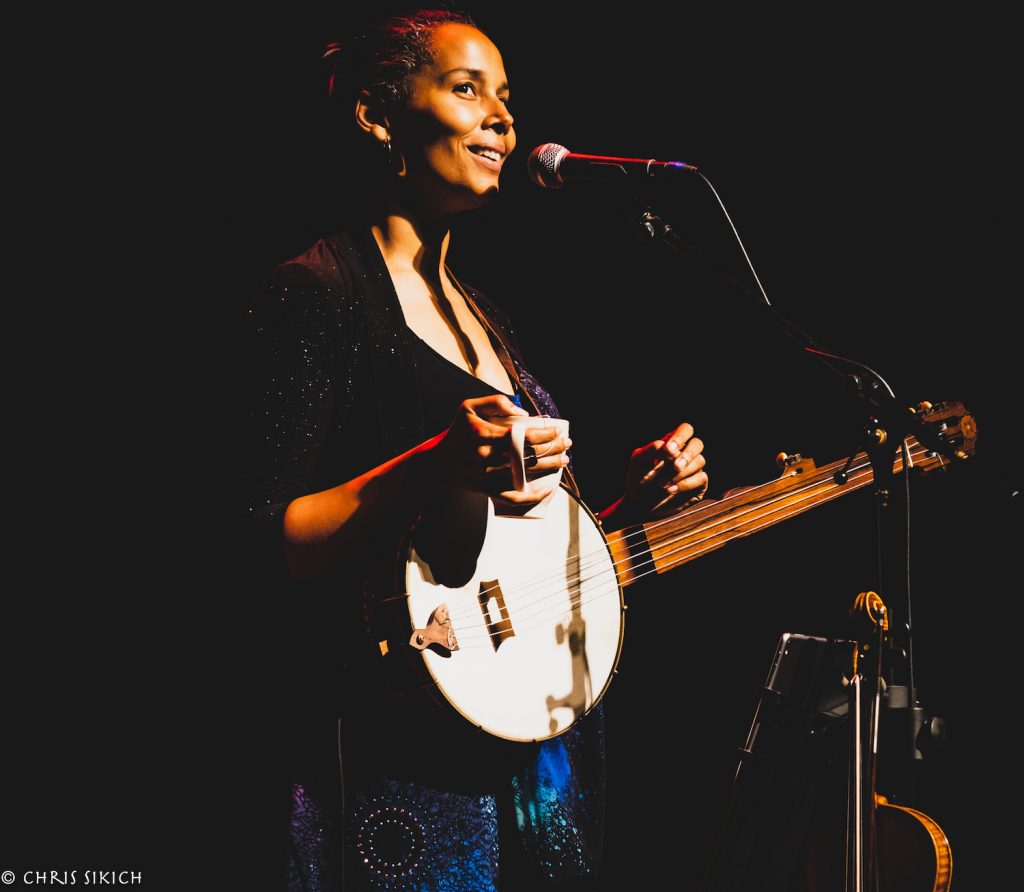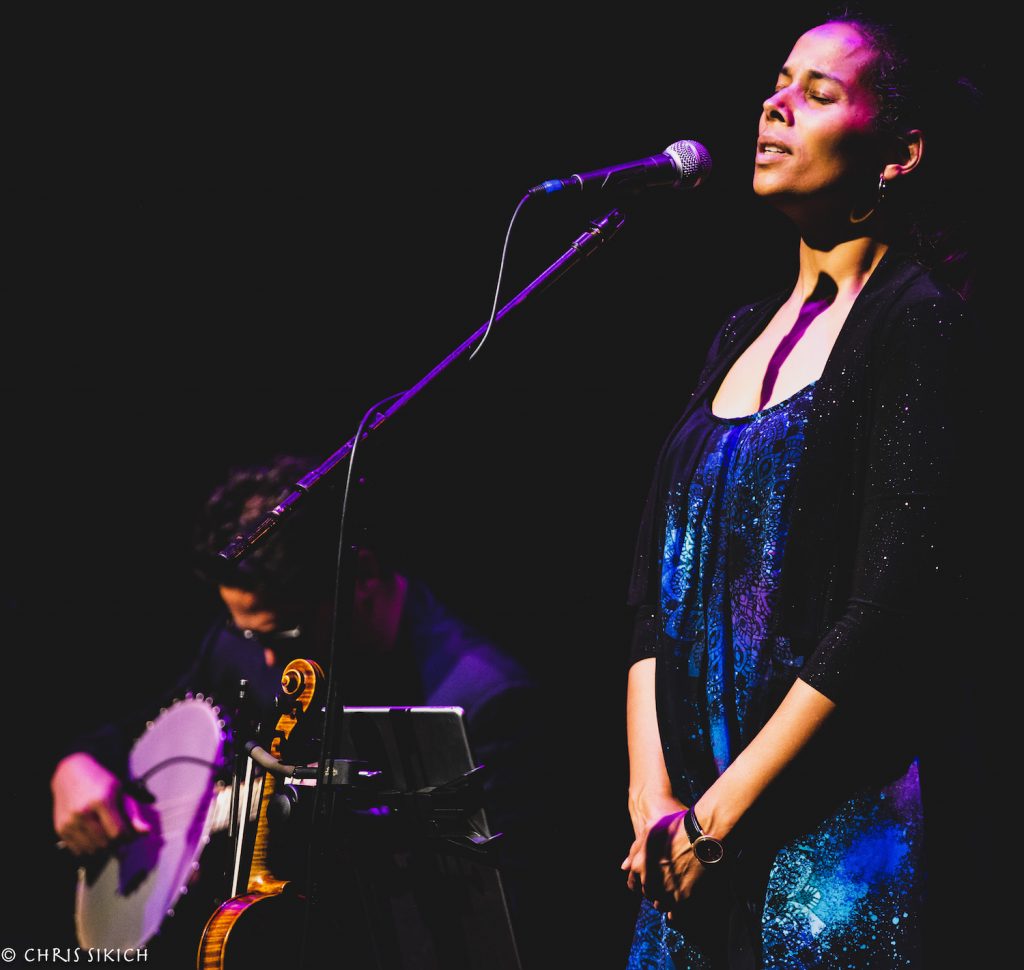
Rhiannon Giddens’ gifts are myriad. Chief among them: the ease with which she moves between interpreting songs from the past and her own deeply moving compositions, always drawing connections between them; her incomparable commitment to the banjo as both a means of exploring history and a living instrument; and, not least, her soulful, opera-trained, folk-honed, jazz-tested voice—a thing of great beauty.
Giddens returned to the Grand Opera House, this time with equal-billed collaborator Francesco Turrisi on a variety of drums, accordion and piano, and accompanied by bassist Jason Sypher. Though the visit was occasioned by Giddens and Turrisi’s lovely There Is No Other, the trio wasn’t beholden to that record, playing pieces from disparate times and places and genres and circumstances, all to underscore the titular assertion: There is no other. We are one, descended from a common source, with intertwined roots—however mysterious, forgotten or untold—and our fates are bound together.
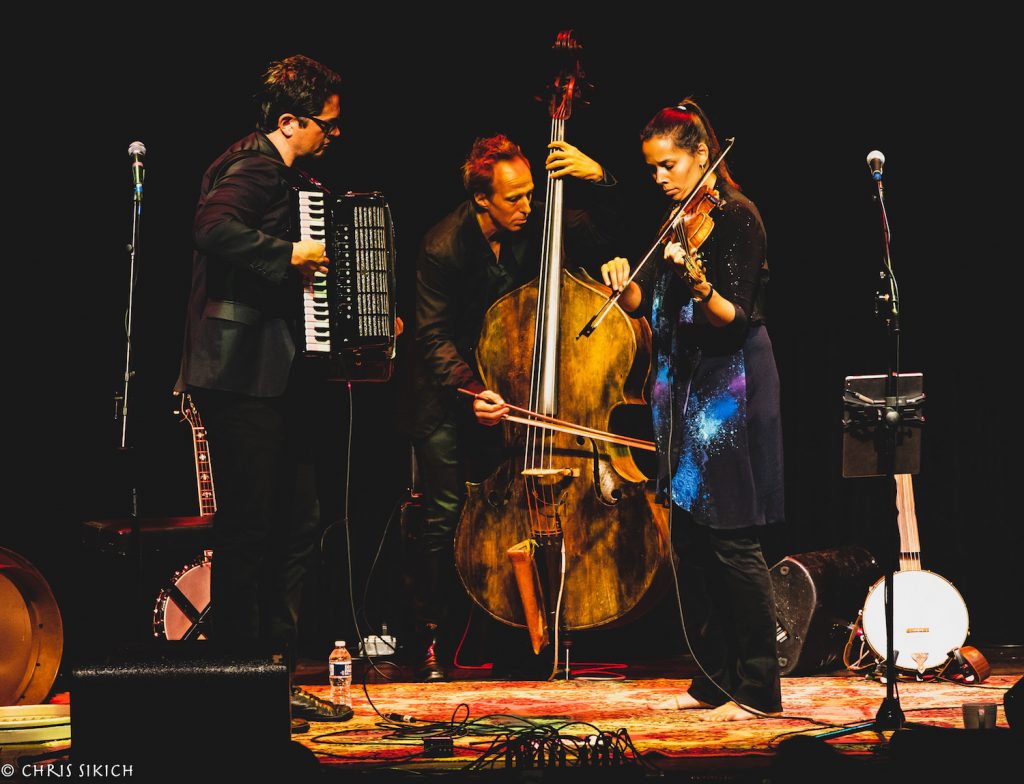
The most devastating pairing was “At The Purchaser’s Option,” on which Giddens gives voice to a mother enslaved but resolute in holding on to her soul, and the traditional “Wayfaring Stranger,” which the group recently performed at the Americana Music Awards. Reflecting on how she makes it through such sorrowful material in every show, Giddens allowed that some nights are are harder than others, but she keeps in mind how lucky she is to just be singing these stories rather than living them, and doing what she can to reclaim the narrative by confronting the ugliness head-on.
For his part, Turrisi was charming and funny, rhapsodizing about the provenance of different frame drums. (The finest Iranian instruments he played were made in Vermont.)
Together, they wove together the dark and the light elements from Turrisi’s native Southern Italy (“Pizzica di San Vito”), Giddens’ native Southern United States (a medley of reclaimed minstrel tunes) and their shared home, Ireland (“Molly Brannigan”—bookended by his transfixing tambourine solo and her astounding vocal acrobatics).
As Giddens expressed late in the show, it’s on all of us to come together to make a better, more sustainable world.
In amplifying the artistry of those who came before, including Ethel Waters, Sister Rosetta Tharpe and Nina Simone, Giddens and Turrisi amply demonstrated one of finest forms of influence: respecting the work and building upon it, one lyric, one bass line, one song at a time.
—M.J. Fine; photos by Chris Sikich
